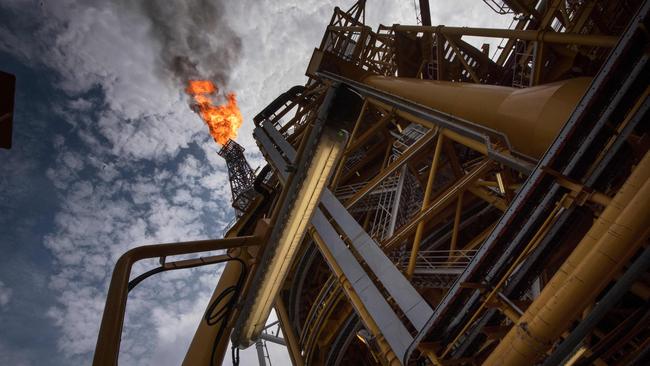Labor might break the gas market as we know it
Labor’s shock decision to fix gas prices permanently may break the gas market as we know it.

Business
Don't miss out on the headlines from Business. Followed categories will be added to My News.
You break it, you bought it.
Labor’s shock decision to fix gas prices permanently may break the gas market as we know it. It amounts to a market redesign on the fly, shifting power away from market forces towards increasing government control.
But with great power comes the burden of great responsibility, a responsibility the government may find to be more complex and difficult than they are counting on. The next energy shortage will now be upon this government’s head.
Effective energy market reforms periodically take place around the world. They usually take a few years to develop, involving expert advice and extensive consultation. Even then, many reforms haven’t turned out well.
Yet, in an attempt to lower prices, the government is effectively redesigning the market in the space of a few weeks, with a consultation of mere days.
There is barely enough time to make submissions on the draft policy, almost no time left for any amendments to draft legislation, let alone parliament to debate it, before it is due to be passed this week.
The policy has ripped up the gas market rules that have kept our lights on for decades. It appears no one is clear on how the policy will work in practice in the details, including the gas industry and the government itself. That’s a recipe for mistakes to be made in the details, despite the best of intentions, and the energy market is all about the details. “She’ll be right, mate,” is unlikely to be right for a complex energy system.
Gas buyers have understandably lauded the price reform, but they may change their view pretty quickly if they realise they have lost supply security and may be forced onto the volatile spot market, or forced into rationing.
Labor has now crossed the Rubicon with its gas policy, with further expansive interventions inevitable to address the unintended consequences of this policy, as the government moves away from market signals towards a command and control structure for east coast gas with questionable capacity to deliver on it. The government may have bitten off more than it can chew, and energy rationing could ensue.
The proposed enabling legislation is even more concerning. Section 53V, for example, may have confused a gas cap-it-all policy with Marx’s Das Kapital. It gives power to the government to take someone’s gas, and force them to sell it where, when, to whom and at what price the government dictates. Why include such draconian powers? Australians should all take pause when property rights are trampled over, especially without allowing time for debate on the merits of doing so.
We can all get behind lower energy bills, of course. But we must recall there is a reason we have markets. Even Europe, with the war on its doorstep, has been wary of price caps, because Europe knows better than most where price caps can lead – gas shortages. Energy prices have skyrocketed, but so have food costs, airfares, housing, among others. If price controls work, why not cap these sectors, too?
Industry is at fault, too, especially for not proactively presenting a unified solution to near-term price rises that are clearly politically unpalatable. But the government now risks doing far more damage to Australia’s economy and jobs than the small degree of damage it will do to gas producers.
As much as it is popular for politicians to face off against the unpopular gas industry and criticise its profits, this isn’t actually about profits. Most gas companies’ profits won’t be materially affected from the policy, and they can just invest somewhere else. The reason industry has responded so strongly is because it can see the policy will cause a much bigger crisis and energy rationing down the line. And it doesn’t want to be held responsible for that.
There was a solution to lower energy bills, involving support for when prices get too high, alongside an agreement with the energy companies to avoid the full excesses of international pricing in the near term. That solution can still be given a chance if there is time allowed to do so. But instead, the government is ramming draconian legislation through parliament a week before Christmas, without giving anyone time to debate or even properly consider it. That’s bad for our energy market, and our democracy.
Saul Kavonic is an analyst at Credit Suisse covering energy, resources and carbon markets.
Originally published as Labor might break the gas market as we know it


